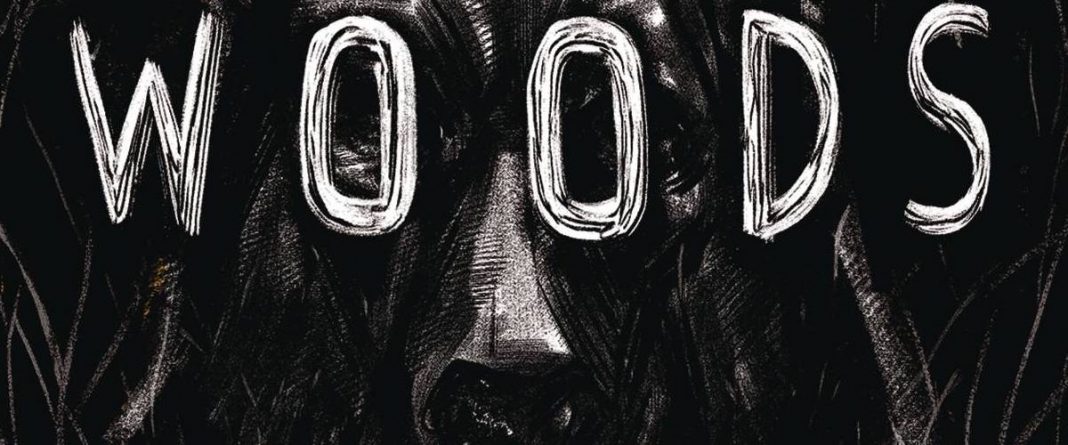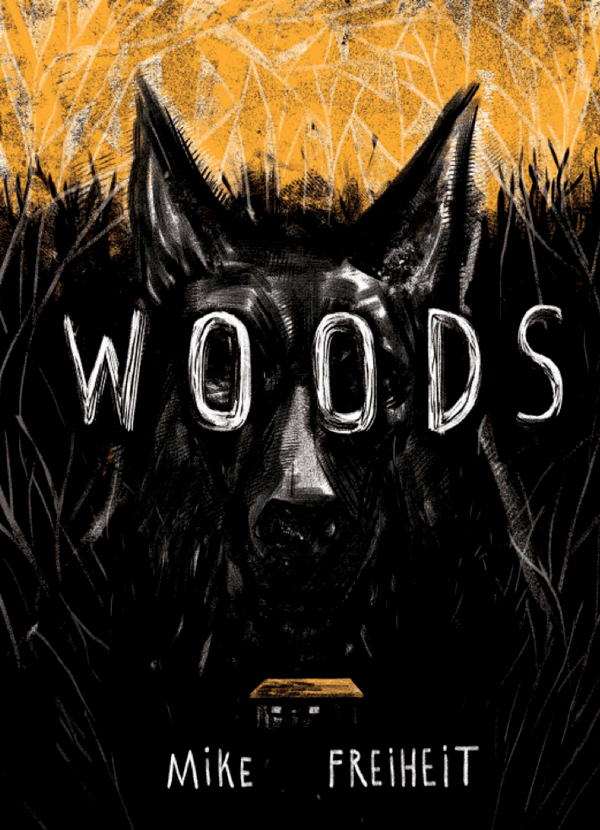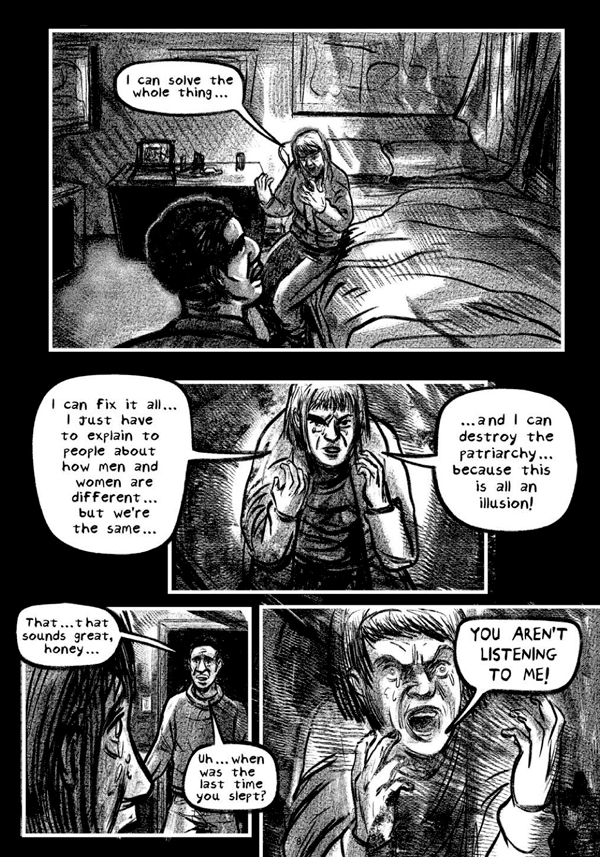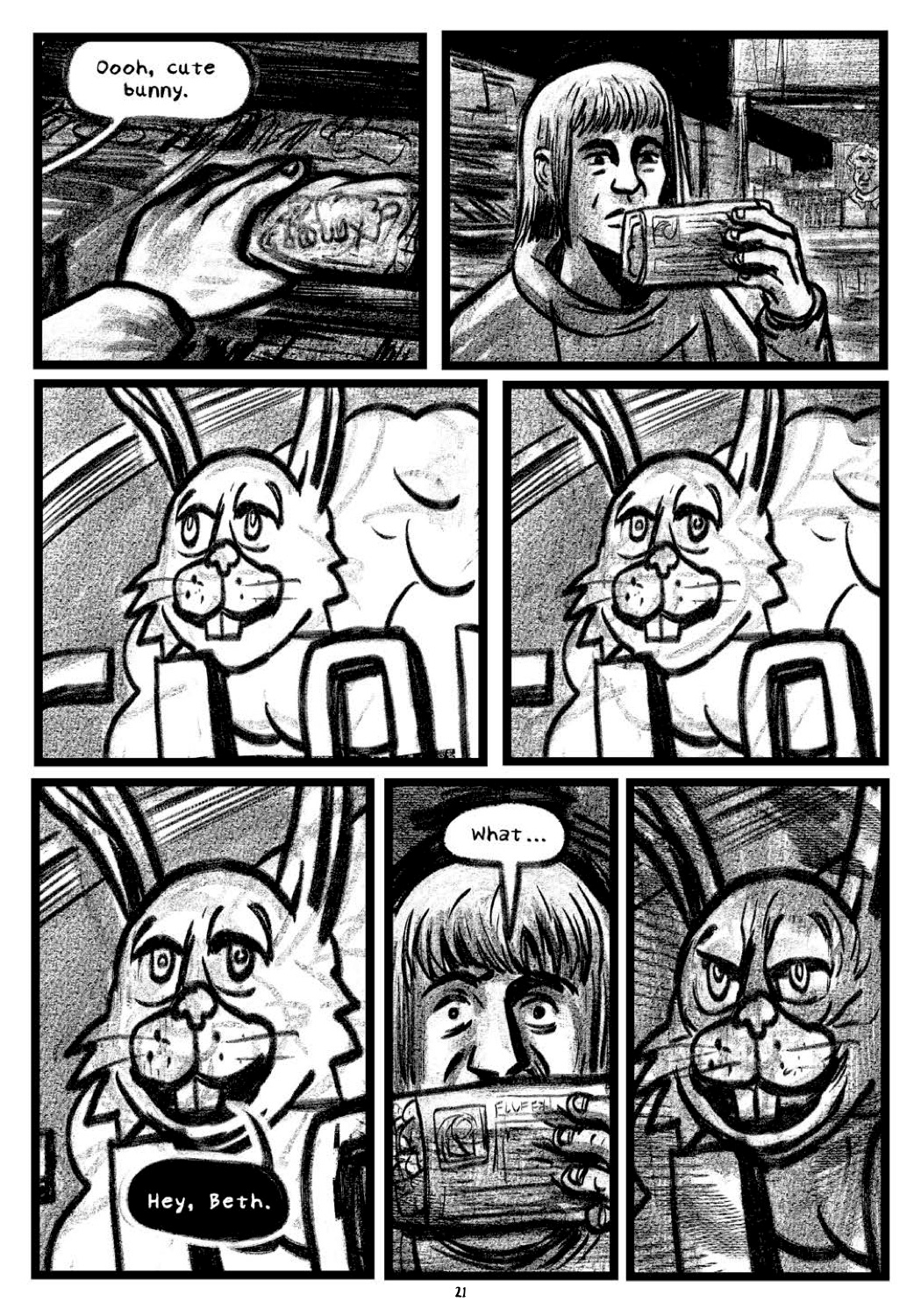Woods
By Mike Freiheit
Birdcage Bottom Books
The times, they aren’t so great. You’re either living in terror of a corrupt, fascist president and pandemic that’s shut down the country, or you’re living in a rage because your president is being obstructed by the pedophile liberals and you’re being oppressed by a fake pandemic that’s attempting to destroy America. Either way, the times suck.
Enter Mike Freiheit’s new comic Woods, filled with terror and paranoia in a way that captures these times perfectly, which may not be what you are looking for, but it might be what you need.
Freiheit’s story centers on Jason and Beth and how their relationship is affected by Beth’s breakdown. It’s not just that the country is filled with political conflict, it’s that it feels like the type of confrontation that’s forging a destructive crack right down the middle, and everyone is feeling that tear as it forms. And it’s not like you can easily tune out — the grinding pain is everywhere, infiltrating all moments of life, coming out in the form of newscasts and hostile hillbillies at the gas station.
It pounds down on Beth and she starts making claims that she’s in possession of the truth about reality, that she’s communicating with God and she understands everything and knows how to solve the problems. There’s more than one world. She’s in Hell. Everyone’s in Hell. She’s Jesus. Or someone’s Jesus.
Her incoherence lands her in the psychiatric hospital for treatment as Jason decides the cure for Beth is isolation — that is, from the world, a shelter that the pain of the crack in the country can’t infect, a place she can’t feel it and it won’t make her shatter again. That escape comes in the form of a cabin that Jason inherited from his parents, previously a burden of sorts but now he has the motivation to finish renovating it while she’s in the hospital and once she gets out, that will be their healing cocoon.
Beth’s mental illness has a mystical aspect to it that initially fuels the perception of incoherency, but when Freiheit begins to open that aspect up to his reader more, it reveals itself as less discombobulating than imagined, and even more soothing. Given the heightened emotions that the world broadcasts into Beth’s brain, it’s no wonder that there is an allure to the voices she hears that offer a skewed clarity and even protection.
But the voices — and the manifestations they take on — also hint at a condition that was not created by the fury of the world’s darkness descending upon Beth. These are not sudden manifestations any more than the condition of the country is. Beth’s struggle within and descent of the United States into violence and chaos have both gestated for a long time, but only now, concurrently, have become visible to those incapable of seeing them. For Beth, the pressure of the political upheaval certainly exacerbated her descent, but it didn’t create it.
Freiheit’s artwork in Woods mirrors the frantic nature of the situation the couple is in — stark black and white, sometimes scratchy as if the sanity of the panels are fraying along with Beth and Jason’s perception of the world around them. Their plight can be presented with sober clarity, but often shifts into abstract darkness, shifting back to sober clarity peppered with figures that shouldn’t be there at all.
In the end, Freiheit’s visual work functions as a unifying marker for the couple. It’s a conclusion that is not hopeful in the big picture but strangely comes off that way in the smaller one. In a world that’s continually erupting, the best we can hope for is empathy and love between the people who are seeking shelter together.











